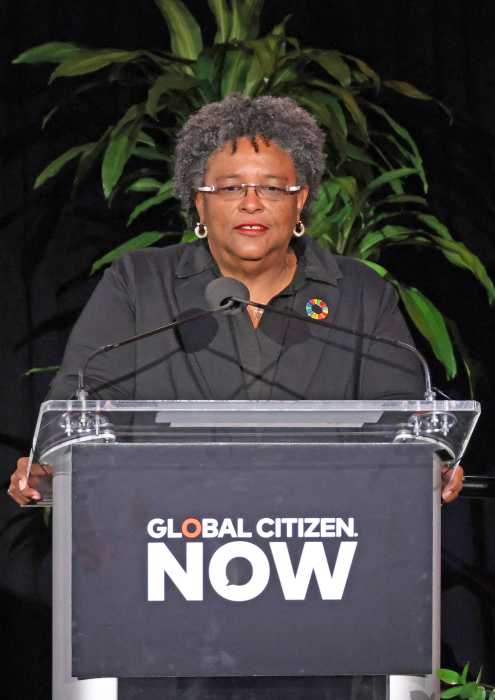As the Barbados government on Dec. 13 announced plans to lay off 3,000 public sector employees and cut the salaries of high-ranking government officials, the International Monetary Fund (IMF) has painted a very bleak picture of the island’s economy.
“The Barbados economy continues to face considerable economic challenges,” said the IMF on Dec. 13 after conducting the 2013 Article IV consultation with Barbadian authorities.
“The authorities agreed with staff on the need for urgent policy adjustments and deeper reforms over an extended period to restore fiscal and external sustainability,” it added.
The IMF mission, which visited Barbados from Dec. 3-13, was headed by Nicole Laframboise.
Laframboise said weak exports and tourism arrivals, slow growth, and expansive fiscal policy “have led to a sharp increase in public debt and fiscal financing pressures.”
She said real output is projected to fall by 0.7 percent in 2013, and that inflation has declined and is forecast to average 2.3 percent for 2013.
In the external sector, the mission said that tourism receipts have “remained flat”, and the current account deficit is projected to widen to 11.4 percent of Gross Domestic Product (GDP) this year.
Together with a sharp drop in private capital inflows in 2013, the mission said international reserves have fallen this year to US$468 million at end-October.
“In this environment, the fiscal position has come under increasing strain,” said Laframboise, adding that the central government deficit is expected to rise to 9.5 percent of GDP in 2013/14, and central government debt had risen to 94 percent of GDP by September 2013.
She said spending cuts under the authorities’ budget proposals announced in August are “broadly on track,” but she added that tax revenues are “falling short of projections.”
Laframboise noted that the Barbados government plans to take additional measures to strengthen adjustment and reduce pressures on the balance of payments.
“A strategic, comprehensive approach is needed to address the underlying weaknesses in public finances and to increase efficiency in the public sector,” she said.
“Policy formulation should be guided by a medium-term fiscal anchor to reduce central government debt to below 85 percent of GDP by 2018,” she added.
Laframboise said a “fundamental review” of the tax system is warranted, disclosing that the Barbadian authorities have requested technical assistance on this from the IMF.
“The goal would be to broaden the revenue base, which has been seriously eroded by statutory and discretionary waivers,” she said.
In the interim, Laframboise said a number of measures could be taken to “significantly improve the yield by strengthening compliance and efficiency in revenue and customs administration.”
The mission chief said the Barbados central government wage bill rose to 10.3 percent of GDP in 2012/13, the highest in the region, “which together with interest payments limits room for investment spending.”
She said IMF staff took note of the government’s decision to reduce the civil service “up front”, adding that “this will lower spending and send a strong signal about policy commitment, though these workers should have access to unemployment support and programs for re-employment.”
In a ministerial statement to Parliament on Dec. 13, Finance Minister Chris Sinckler said the Democratic Labor Party government was trying to plug a gap of BDS$143 (One BDS dollar = US$0.50 cents) million annually, including BDS$34 million in the last quarter of the year.
As a result, he said 3, 000 public servants, both from central government and statutory corporations, will be going home next year in two tranches.
The IMF mission said, alternatively, downsizing by attrition and implementing a wage formula that freezes the average wage per worker would also reduce the wage bill significantly over time and would contribute to lowering economy-wide labor costs.
“This is needed to raise Barbados’ external competitiveness, particularly given the nation’s deep commitment to its exchange rate peg, which the IMF recognizes,” the statement said.

























